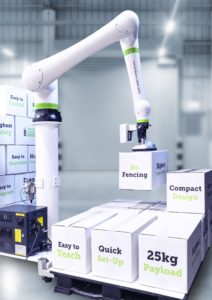
FANUC introduces new DR-3iB/6 STAINLESS Delta Robot at Automate 2022
FANUC America, a global provider in CNCs, robotics, and ROBOMACHINEs, will introduce the new DR-3iB/6 STAINLESS delta robot for primary

FANUC America, a global provider in CNCs, robotics, and ROBOMACHINEs, will introduce the new DR-3iB/6 STAINLESS delta robot for primary
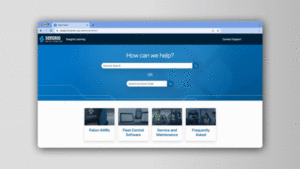
Seegrid Corporation, the manufacturer of autonomous mobile robots (AMRs) for material handling, has announced the launch of a new customer
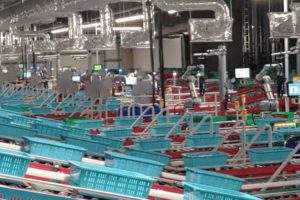
RightHand Robotics, a provider of data-driven, autonomous robotic picking solutions for order fulfillment, announces its debut at LogiMAT 2022, the
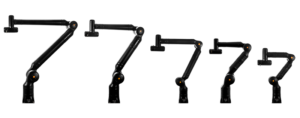
Kassow Robots, a developer of 7-axis cobots for machine tending, material handling, and related applications, has partnered with BlueBay Automation
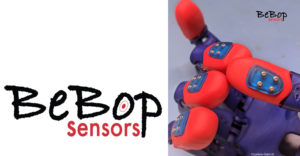
BeBop Sensors, Inc., the world provider of smart fabric sensor technologies, has announced the BeBop Sensors RoboSkin line of skin-like coverings

Mobile Industrial Robots (MiR) has announced that Mark Joppru has joined the autonomous mobile robot (AMR) first mover and global

In this episode, I was joined by the father-daughter duo of Dave and Maddie Haley. They are both in the

The Amazon Industrial Innovation Fund invests in BionicHIVE to address a key challenge in the fast-growing supply chain emerging technology

In this episode, I was joined by Ed Kennedy of Procensis at MODEX 2022. Procensis is focused on turning your
While 80% of employed U.S. adults consider an employer’s professional development and training offerings an important consideration when accepting a

In this episode, I was joined by the President of Verses, James Hendrickson, at MODEX 2022. James and I reconnected
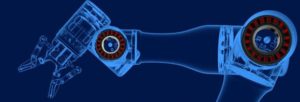
Kollmorgen, a global provider in motion control systems, has announced the new TBM2G series of frameless servo motors, introducing features

Warehouse automation company, AutoStore, just announced the opening of its new Singapore office. The location will serve as the local

Demand for shorter lead times needs for quality products and staffing shortages. It’s an equation resulting in increased automation in
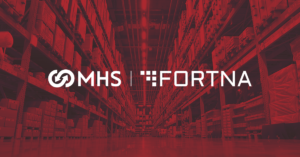
MHS Global (“MHS”), a global provider of material handling automation technology and systems integration, and Fortna (“Fortna”), a software and

In this episode, I was joined by A.K. Schultz at MODEX 2022 to discuss his company, SVT Robotics. SVT Robotics

Kassow Robots, a developer of 7-axis cobot solutions for machine tending, material handling, and related applications, has partnered with Gibson

Autonomous Mobile Robot provider earns recognition for technology leverage, commercialization success, and growth potential Seegrid Corporation, a provider of autonomous

In this episode, I was joined by Dave Haley of Open Sky Group at MODEX 2022. Open Sky Group is
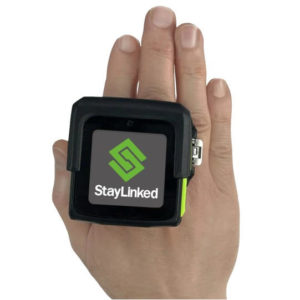
StayLinked, a market provider in terminal emulation (TE) solutions for the supply chain industry, has announced its support for Zebra